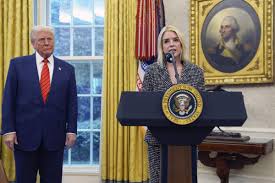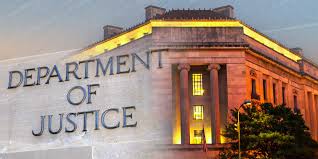Transforming the Justice Department

The Trump Administration is focused on change in the government’s role, the administrative state, and the political environment. With these changes, you can expect the Trump Administration to aggressively pursue violators — DOJ is being re-organized in a way to decentralize prosecutorial discretion to the U.S. Attorneys’ Offices among the 94 specific judicial districts. DOJ’s supervisory role had been a hinderance in certain areas, and DOJ wants to unleash U.S. Attorneys’ Offices.
The Justice Department is reorganizing resources to match its current list of priorities. A number of white collar prosecutors have been reassigned to immigration, cartel, trade sanctions and export controls and other areas for enforcement work. This will have a dramatic impact on white collar enforcement — where prosecutors go, law enforcement will follow.
The Trump Administration is embracing significant changes at the FBI, DEA, DHS and ATF. DOJ’s direction is to increase enforcement of classes of cases that are typically generated from border enforcement including human trafficking, cartels and transnational criminal organizations, drug and border related violence, fentanyl trafficking and immigration violations.

There is little room in the Trump Administration’s strategy for prosecuting white collar crime such as FCPA, securities fraud and other bread and butter illegal schemes. To the extent money laundering is tied to these priority issues, prosecutors will add money laundering charges. Bribery and money laundering cases, however, may become relatively rare or cabined to cases involving cartels and TCOs. To track this issue, interested persons have to follow DOJ’s assignment and allocation of prosecutors and law enforcement resources.
By delegating significant authority to local U.S. Attorneys’ Offices, the Justice Department may increase prosecutions in the target areas. Traditional gang prosecutions and use of the RICO statute could increase. With so much discretion in local prosecutors offices, DOJ may increase prosecutions in these areas but may sacrifice centralized review and consistency in use of complex charges.
As a former AUSA, removal of the Justice Department oversight is a welcome development. AUSAs and US Attorneys are more than capable of exercising discretion and targeting resources. In many respects, DOJ oversight was not needed and inconsistently applied across various judicial districts. DOJ’s responsibility for criminal enforcement was limited to various areas and might supplement local staff. This balance between centralized and local controls will change and it will be interesting to monitor how this adjustment works.
The Justice Department’s new approach requires companies to adjust some of their risk mitigation strategies. Law enforcement and prosecutors will be active, and the potential for stretching into corporate prosecutions has to be monitored and mitigated.
Most companies have recalibrated compliance efforts surrounding international trade and imports. This is an area that the Justice Department and regulatory agencies have confirmed will be a high priority. Sanctions, export controls and military equipment trade has to be closely monitored.

On the flip side, imports will be subject to heightened scrutiny for potential sanctions and sourcing issues tied to human trafficking, forced labor, particularly in China.
Trade wars with new tariffs and regulatory restrictions will create a perilous environment for companies that depend on international trade for production or sales purposes. The Trump Administration will be single-minded in promoting manufacturing and sourcing operations in the United States.
From a business and compliance perspective, companies should reexamine their supply chains to weigh risks of disruption and concomitant regulatory enforcement risks.
















Mr. Volkov,
From the perspective of the voting public that supported Trump, he has definitely redirected his efforts away from protecting the labor force trying to save for retirement. History has repeated itself many times over in the past, and has proven large financial institutions will take advantage of lessening regulations and control to defraud the masses and separate them from their savings. 2008-2009 was a classic example, soon to be repeated.
The decision by Trump to de-regulate financial institutions by ignoring their fraudulent schemes and focusing on lesser local crimes will soon destroy our retirement system. Institutional crime is nationally systemic, and it’s enforcement needs Federal centric control for enforcement to work. This “new approach” will also inevitably terminate the Attorney General’s Whistleblower program, a welcome decision for thousands of crooked corporate criminals.